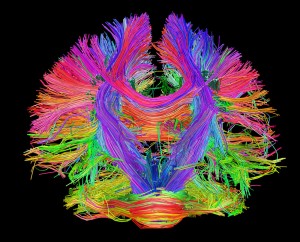Aug
10
2017
 Understanding the nature of argument and specific logical fallacies is a cornerstone of critical thinking. I was therefore surprised when I read an article by a philosopher, Maarten Boudry, titled: “The Fallacy Fork: Why It’s Time to Get Rid of Fallacy Theory.”
Understanding the nature of argument and specific logical fallacies is a cornerstone of critical thinking. I was therefore surprised when I read an article by a philosopher, Maarten Boudry, titled: “The Fallacy Fork: Why It’s Time to Get Rid of Fallacy Theory.”
Boudry lays out what he feels is a critical weakness in using the notion of logical fallacies to police sloppy thinking and his solution is to abandon the notion of informal logical fallacies altogether. I strongly disagree, and ironically I think Boudry is committing a couple logical fallacies in his argument.
The Fallacy Fork
The basis of his position is the notion of what he and his coauthors on a 2015 paper call “The Fallacy Fork.” The basic idea is that informal logical fallacies are highly context dependent. Let’s take as an example the fallacy of confusing correlation with causation. Because this reasoning is context dependent there is a spectrum in terms of how absolutely one makes this argument.
So, someone might say that correlation is always due to direct causation, which is clearly not true. They might also take the position that one particular causation must be true because of a correlation, which again is demonstrably false. There is no legitimate “always” or “must” with such arguments.
Continue Reading »
May
22
2015
Yesterday I wrote about our struggle to promote and defend the teaching of evolution, and good science in general, in the public school science classroom. My overall point was that, while we are winning on the legal battleground, we are not making much headway in the broader cultural context, and perhaps we need to step back and think about our strategy.
To my delight, Michael Egnor made an appearance in the comments, and it seemed he truly wanted to engage (at least for a while). Dr. Egnor, if you recall, is a neurosurgeon who rejects what he calls “Darwinism.” He blogs on his own blog and for the Discovery Institute, and we have occasionally crossed swords on our respective blogs.
I was also pleased that the conversation remained polite and civil, allowing us to drill down to the core issues. I want to summarize our exchange here and expand on my responses in the comments.
Continue Reading »
Dec
16
2014
 It has been six years since I have written a blog post deconstructing the nonsense of our favorite creationist neurosurgeon, Michael Egnor. In case you have forgotten, he is a dualist writing for the intelligent design propaganda blog, Evolution News and Views. He delights in ridiculing what he calls “materialist metaphysics,” or what scientists call, “science.”
It has been six years since I have written a blog post deconstructing the nonsense of our favorite creationist neurosurgeon, Michael Egnor. In case you have forgotten, he is a dualist writing for the intelligent design propaganda blog, Evolution News and Views. He delights in ridiculing what he calls “materialist metaphysics,” or what scientists call, “science.”
I guess I shouldn’t be surprised that he has managed to outdo his prior incoherent ramblings. In a recent blog post he claims that it is impossible for the brain to store memories, an idea he ridicules as “nonsense.”
As usual, Egnor is playing loose with definitions and logic, tying himself up in a conceptual knot in order to arrive at his desired destination – the idea that the brain cannot account for mental phenomena. His logic train derails pretty quickly:
It has been known for the better part of a century that certain structures in the brain are associated with memory. The amygdala and the hippocampus in the temporal lobe, and some adjacent cortical regions, have been shown to be associated with the act of remembering in animals and humans.
Continue Reading »
Jun
12
2014
 Having read deeply into the creationist literature and having had countless discussions with creationists, one thing is clear to me – creationists do not understand evolutionary theory.
Having read deeply into the creationist literature and having had countless discussions with creationists, one thing is clear to me – creationists do not understand evolutionary theory.
To be fair, most people don’t really understand evolutionary theory, but creationists have a particularly poor understanding. Their problem goes beyond generic scientific illiteracy. They primarily learn about evolution from secondary hostile sources – other creationists. What they learn is creationist made-up nonsense about evolution, which they confuse for the science of evolution. This condemns them to mostly attack pathetic straw men rather than what scientists actually claim about evolution.
For example, Michael Egnor (remember him?), the creationist neurosurgeon who blogs for the Discotute, claimed that if evolution were true, then brain cancer should evolve a better functioning brain.
Today I am going to pick on another example of “if evolution were true, then…” creationist nonsense. This one comes from Creationtoday.org, in a Youtube video Derek Isaacs, a young-earth creationist, claims that:
“If evolution is true and it’s all about the male propagating their DNA, we had to ask hard questions like, well is rape wrong?”
It’s a little disturbing that Isaacs finds this a hard question, but let’s break down the many fallacies in this statement.
Continue Reading »
Sep
13
2013
Michael Egnor likes to play the game of Name That Logical Fallacy – or at least he likes to set up other people to play that game. He is a creationist neurosurgeon who has been blogging over at Evolution News & Views, an intelligent design propaganda outlet. In a recent post he attempts to reply to my post deconstructing a paper by Graville Sewell in which he claimed that evolution violates the second law of thermodynamics.
Egnor blows his first attempt at naming a fallacy.
Novella begins his critique of Sewell’s argument with the usual Darwinist ad hominem:
“Creationists will just not let go of an argument, no matter how many times it is pointed out to them that their argument is unsound. They simply find new twists of logic and distortions of science to resurrect their precious argument, clinging to it more tightly than Gollum held onto his ring.”
Continue Reading »
May
17
2012
I hadn’t planned for this topic to take over my blog this week, but it happens. Judging by the comments there is significant interest in the issue of consciousness, and Kastrup and I are just getting to the real nub of the argument. So here is another installment – a reply to Kastrup’s latest offering. First, however, some background.
Materialism, Dualism, and Idealism
Philosophers of mind, such as David Chalmers, now recognize three general approaches to the question – what is consciousness? Materialism is the view that the mind is what the brain does. This is often stated as the mind is caused by the brain. Some commenters took exception to this phrase, saying it implies a dualist position, that the mind is its own thing, but I disagree. The brain is the physical substance, while the mind or consciousness is a process that emerges from the brain. A dead or deeply comatose brain has no mind, so they are manifestly not the same thing. Language here is a bit imprecise, but I think the phrase – the brain causes the mind – is an acceptable short hand for the materialist position.
Dualism is the position that consciousness is something separate from the brain and not entirely caused by it. It may be a separate property of the universe (property dualism) or be something beyond the confines of our material universe. Whatever it is, it does not reduce to the firing of neurons in the brain, which cannot, in the opinion of dualists, explain subjective experience.
Continue Reading »
May
15
2012
It has been a while since I wrote about dualism – the notion that the mind is something more than the functioning of the brain. Previously I had a blog duel about dualism with creationist neurosurgeon, Michael Egnor. Now someone else has jumped into that discussion: blogger, author, and computer engineer Bernardo Kastrup has taken me on directly. The result is a confused and poorly argued piece all too typical of metaphysical apologists.
Kastrup’s major malfunction is to create a straw man of my position and then proceed to argue against that. He so blatantly misrepresents my position, in fact, that I have to wonder if he has serious problems with reading comprehension or is just so blinkered by his ideology that he cannot think straight (of course, these options are not mutually exclusive). I further think that he probably just read one blog post in the long chain of my posts about dualism and so did not make a sufficient effort to actually understand my position.
Kastrup is responding specifically to this blog post by me, a response to one by Egnor. Kastrups begins with this summary:
I found it to contain a mildly interesting but otherwise trite, superficial, and fallacious argument. Novella’s main point seems to be that correlation suffices to establish causation. He claims that Egnor denies that neuroscience has found sufficient correlation between brain states and mind states because subjective mind states cannot be measured.
Continue Reading »
Jul
08
2011
One of the things I like about blogging is that it is as much a dialogue as it is as it is a venue for one person’s opinions. Often the comments section becomes more interesting than the post itself. I also occasionally blog in response to someone else’s blog, and it is not uncommon for a blog conversation (or argument) to break out. Responding to someone else’s comments (even if they are from some random or anonymous blogger or commenter) can make a discussion more interesting.
For example, I have blogged numerous times in the past about the “god of the gaps” style of argument, and the philosophical nature of science. This has garnered the occasional response from creationists, which is always amusing. Recently a blogger named Mariano Grinbank wrote a response on examiner.com. His response is largely an exercise in naked assertion and ad hominem style arguments. Responding to my mind/brain discussion he writes:
Just how is it clearly established that the brain causes mind? It could actually be said to be much more clearly established that mind causes the brain.
It could be said – but it would be wrong. The question is disingenuous because I outline exactly how it is clearly established that the brain causes the mind, in numerous posts, including the one that Grinbank refers to (although does not link to – perhaps he was just relying on Egnor’s responses to my posts). I will outline the evidence yet again: The hypothesis that the brain causes the mind (and does not merely correlate with the mind) makes a number of specific predictions:
Continue Reading »
Apr
13
2010
This is homeopathy awareness week – and like some other science bloggers I want the public to be as aware of homeopathy as possible. I want the public to be aware of the fact that homeopathy is based upon the “law of similars” – which is nothing more than the ancient superstition of sympathetic magic. I want the public to be aware of the fact that most homeopathic solutions are diluted far past the point where there is likely to be a single molecule of active ingredient left – and therefore claims for the homeopathic “law of infinitesimals” violates the law of mass action and the laws of thermodynamics.
I also do not want to silence homeopaths, as some have suggested. I want them to speak for themselves – every time a homeopath opens their mouth they make my job easier. Right now Dana Ullman, the ultimate online homeopathy apologist, is spewing incoherent nonsense in the comments at Science-Based Medicine. You also have to see Dr. Warner’s brilliant explanation for how homeopathy works (every time someone watches this video Einstein’s corpse cries.)
And now John Benneth is becoming the energizer bunny of hilarious YouTube videos. Seriously, this is beyond parody. Nothing’s better than homeopathy explained by a raving…well, take a look for yourself. I am slightly embarrassed to have Benneth as my new nemesis. I preferred Egnor – at least he was coherent at times and didn’t come off as a drunk who just rolled out of bed. With Egnor you could play “Spot the Logical Fallacy” and it would be challenging at times. Benneth makes it too easy.
Continue Reading »
Jan
08
2010
Raymond Tallis is an author and polymath; a physician, atheist, and philosopher. He has criticized post-modernism head on, so he must be all right.
And yet he takes what I consider to be a very curious position toward consciousness. As he write in the New Scientist: You won’t find consciousness in the brain. From reading this article it seems that Tallis is a dualist in the style of Chalmers – a philosopher who argues that we cannot fully explain consciousness as brain activity, but what is missing is something naturalistic – we just don’t know what it is yet.
Tallis has also written another article arguing that Darwinian mechanisms cannot explain the evolution of consciousness. Curiously, he does not really lay out an alternative, leading me to speculate what he thinks the alternative might be.
Continue Reading »
 Understanding the nature of argument and specific logical fallacies is a cornerstone of critical thinking. I was therefore surprised when I read an article by a philosopher, Maarten Boudry, titled: “The Fallacy Fork: Why It’s Time to Get Rid of Fallacy Theory.”
Understanding the nature of argument and specific logical fallacies is a cornerstone of critical thinking. I was therefore surprised when I read an article by a philosopher, Maarten Boudry, titled: “The Fallacy Fork: Why It’s Time to Get Rid of Fallacy Theory.”







